Computational Systems Biology for Digital Medicine
7–12 December 2025
Wellcome Genome Campus, UK
From data to models to digital twins
Summary
This advanced course will focus on integrating biological data in computational models to study complex disease mechanisms, focusing on oncology and autoimmunity. It will emphasise building mechanistic computational models that can be used to analyse a system from a dynamic perspective and give insights into the emerging behaviour under multiple perturbations. The course will present examples from small to medium-sized models to developing large-scale, multicellular digital twins, covering the state of the art and the new developments in the field.
The participants will be guided through the basics of network biology, with use cases ranging from cancer to inflammation and autoimmunity. Networks are the backbone of biological mechanisms, as nothing acts in isolation in living organisms. Graph-based models can formalise and integrate large parts of prior biological knowledge, serve as templates for visualising and analysing “omics” datasets and enable novel insights and predictions. Adding the mathematical description of the interactions allows us to perform simulations and study the behaviour of these systems in time and under multiple scenarios. In other words, a formal description of the interactions will enable us to pass from static to dynamic, executable models of biological processes. Executable modelling is a powerful tool for capturing networks’ dynamic behaviour, revealing the system’s emergent behaviour under different conditions by performing in silico simulations and perturbations.
What will this course cover?
This course will cover basic and advanced concepts of mechanistic computational modelling, emphasising discrete, logic-based models. Discrete, logic-based models, specifically Boolean models where the nodes are attributed binary values according to their state of activation, and the interactions are modelled by logical functions, are widely used in modelling biological mechanisms due to their versatile nature and scaling capacity. The course will also briefly cover the use of omic datasets to either build/ infer models or compare the model’s predictions against gene and protein states found in biological samples. However, applicants should note that this is not primarily a data analysis and integration course.
Who is this course for?
This course is aimed at PhD students, postdocs and more senior scientists with backgrounds ranging from experimental biology, clinical research, healthcare and hospital practice, data science, bioinformatics, who are interested in using systems biology approaches and computational modelling to tackle biological and biomedical problems concerning human disease.
Learning outcomes
What will you achieve?
After completing the course, participants should be able to:
- Understand the differences between static and dynamic representations of disease mechanisms
- Understand basic concepts of discrete modelling approaches
- Retrieve disease networks/ mechanisms from dedicated public repositories and databases, and use them as model templates
- Use a range of computational modelling software to develop and analyse discrete computational models
- Use available high and low throughput data to feed and train the models
Programme
This is an on-site course at the Wellcome Genome Campus in Hinxton, UK.
Please note that the detailed programme will be available shortly before the beginning of the course. The course will consist of lectures, discussions, and computational exercises covering as many of the following topics as possible:
Static Disease Networks (molecular maps, pathway assembly, structural analysis etc.)
- Overview of databases/ resources
- Different network representations using systems biology graphical notation (SBGN) languages (Process Description, Activity Flow)
- Interactive network visualisation and topological analysis
Dynamic Disease Networks (Stochastic Models, Logical (Boolean)/ Discrete Models, Hybrid models)
- Network/ Model Curation and sharing
- Disease Boolean Networks
- Logical/Discrete modelling and simulation of disease networks, and analysis of their dynamical properties
- Stochastic modelling and simulations
Data integration
- Datatypes and discretization
- Integrating results from machine learning and AI into mechanistic models
- Data flows for digital twins
Workflow
The week-long course will start from static representations of disease mechanisms in forms of networks, covering aspects of formal representation, available resources, and interactive network visualisation. We will further introduce approaches for personalising models from collected datasets in digital shadows and twins. Gradually, with the addition of logical descriptions (automatically or manually), we will pass from static graphs to dynamic networks. We will explore a number of computational modelling tools that allow for in silico simulations and perturbations in order to understand emerging behaviours of the system under different biological scenarios and move to more in-depth dynamical analysis (finding stable states, attractors, performing in silico knockouts, sensitivity analysis, etc.). The complexity of the tools will also gradually rise (from GUI to program-based) following the needs arising from different biological questions.
In parallel, we will showcase how omic data can be used to evaluate a model’s behaviour (set of observations) and guide hypothesis testing (discrete mapping to the system’s attractors). Scripts, cheat sheets and other teaching materials will be provided along with instructor support to ensure that all participants are able to follow and progress throughout the week.
Instructors and speakers
The participants will benefit from a team comprising high-level experts in the field, including Professors and Senior Researchers in Computational Systems Biology, Computer Science, Bioengineering, Bioinformatics, and other related fields. The confirmed Instructors, Keynotes and Trainers for this year include:
Lead Instructors

Anna Niarakis
Université de Toulouse III - Paul Sabatier, Center of Integrative Biology, France
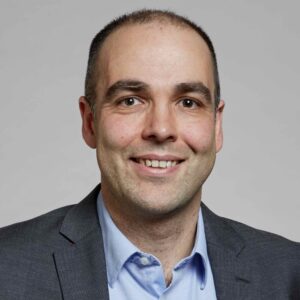
Ben Hall
University College London, UK
Training Team
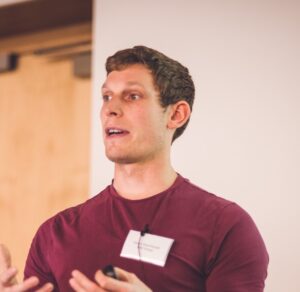
David Shorthouse
University College London, UK

Sylvain Soliman
Inria, France

Tomas Helikar
University of Nebraska - Lincoln, USA

Pedro T. Monteiro
IST / INESC-ID - University of Lisbon, Portugal

Arnau Montagud
Institute for Integrative Systems Biology (I2SysBio), CSIC-UV, Spain

Rahuman S Malik Sheriff
European Bioinformatics Institute, UK
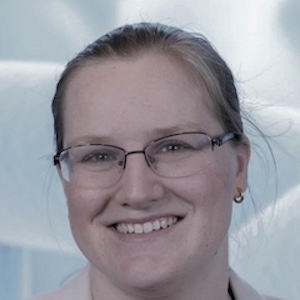
Martina Summer-Kutmon
Maastricht Centre for Systems Biology and Bioinformatics (MaCSBio), Maastricht University
Guest Speakers

Jasmin Fisher
University College London, UK
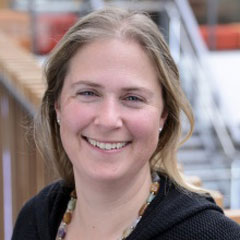
Sarah Teichmann
University of Cambridge, UK

Henning Hermjakob
European Bioinformatics Institute, UK
Wellcome Connecting Science - Learning and Training
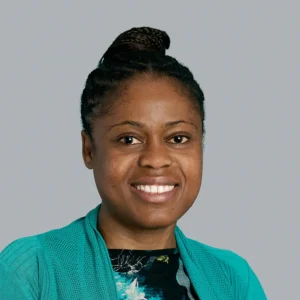
Alice Matimba
Head of Training and Global Capacity

Martin Aslett
Informatics Manager

Vaishnavi Vikas Gangadhar
Informatics Technical Officer
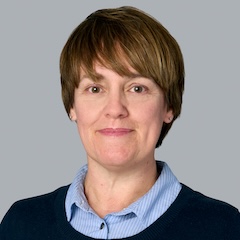
Nicola Stevens
Event Organiser
How to apply
Prerequisites
The course is accessible and beneficial to applicants without advanced bioinformatics skills or experience. However, to fully benefit from the course, participants should:
- be familiar with bioinformatics tools, platforms and data resources
- be familiar with working in a Linux environment and have a basic knowledge of a programming language (Python, R etc.)
With this in mind, ‘Introduction to Linux for biologists’and ‘Introduction to R’ pre-course materials willl be provided around 1 month before the start of the course.
Addtionally, numerous free online resources are available including:
- http://www.ee.surrey.ac.uk/Teaching/Unix/
- https://www.guru99.com/unix-linux-tutorial.html
- https://www.datacamp.com/courses/free-introduction-to-r
- https://www.datacamp.com/courses/intro-to-python-for-data-science
How to Apply
- Start the application
- Click on the “Apply” button above to start your application. Please note that places are limited and will be awarded based on merit.
- Demonstrate the course’s relevance to your project/role
- Our courses are highly subscribed, so it is essential to clearly show how the skills you will learn in the course will be directly applicable and beneficial to your current role/project and how do you plan to disseminate the knowledge after the course.
- Preference will be given to applicants who are currently working on related projects or soon will be.
- Letter of recommendation
- Applications must be supported by a recommendation from a scientific or clinical sponsor (e.g., supervisor, line manager, or head of department). Ensure that your sponsor provides a tailored supporting statement by the application deadline. This statement must be uploaded as a PDF document to the registration system within your application. Applications without a supporting statement will not be considered.
- Need help?
- If you encounter any problems with the online application process, please contact us at courses@wellcomeconnectingscience.org for assistance.
Application deadline: 25 August 2025
Travel visas
Citizens of many countries can travel to the UK to attend a course or conference without needing a visa. Please check the UK government website for visitor information: https://www.gov.uk/standard-visitor.
The Home Office and UK Government have recently announced the introduction of an Electronic Travel Authorisation (ETA) process which now applies to all visitors coming to the UK. If you are selected to attend it is your responsibility to secure the correct documentation to travel to the UK. You can find more information by following this link
Confirmed attendees requiring a letter to support a visa application should contact us at courses@wellcomeconnectingscience.org.
Cost
| Cost | What’s included ? |
|
| *Course fee | £1114 | includes accommodation and all meals |
*The course fee is subsidised by Wellcome Connecting Science.
Reduced rates are available for those who do not require accommodation, please contact us for more information. Please be aware that the campus is based in a rural location and this option is only suitable for attendees who are already based locally and have access to private transport.
Contact us at courses@wellcomeconnectingscience.org for the commercial rate.
The fee will be requested once acceptance is confirmed.
Bursaries
Limited bursaries, covering up to 50% of the course fee, are awarded based on merit. To apply, complete the bursary section of the online application form, explaining why funding would benefit you.
Applicants will be informed of the outcome, along with their course placement, typically within a month of the application deadline.
Please note that both the applicant and sponsor are required to provide a justification for the bursary as part of the application.
Deadline: 25 August 2025
Additional funding opportunities
Visit our support page for additional financial support currently available and to read our most recent article on breaking down financial barriers.
Extra accommodation
If you wish to book onsite accommodation either side of the course dates, please contact Hinxton Hall Conference Centre directly.
Accommodation services phishing scam – please be vigilant. More information.

